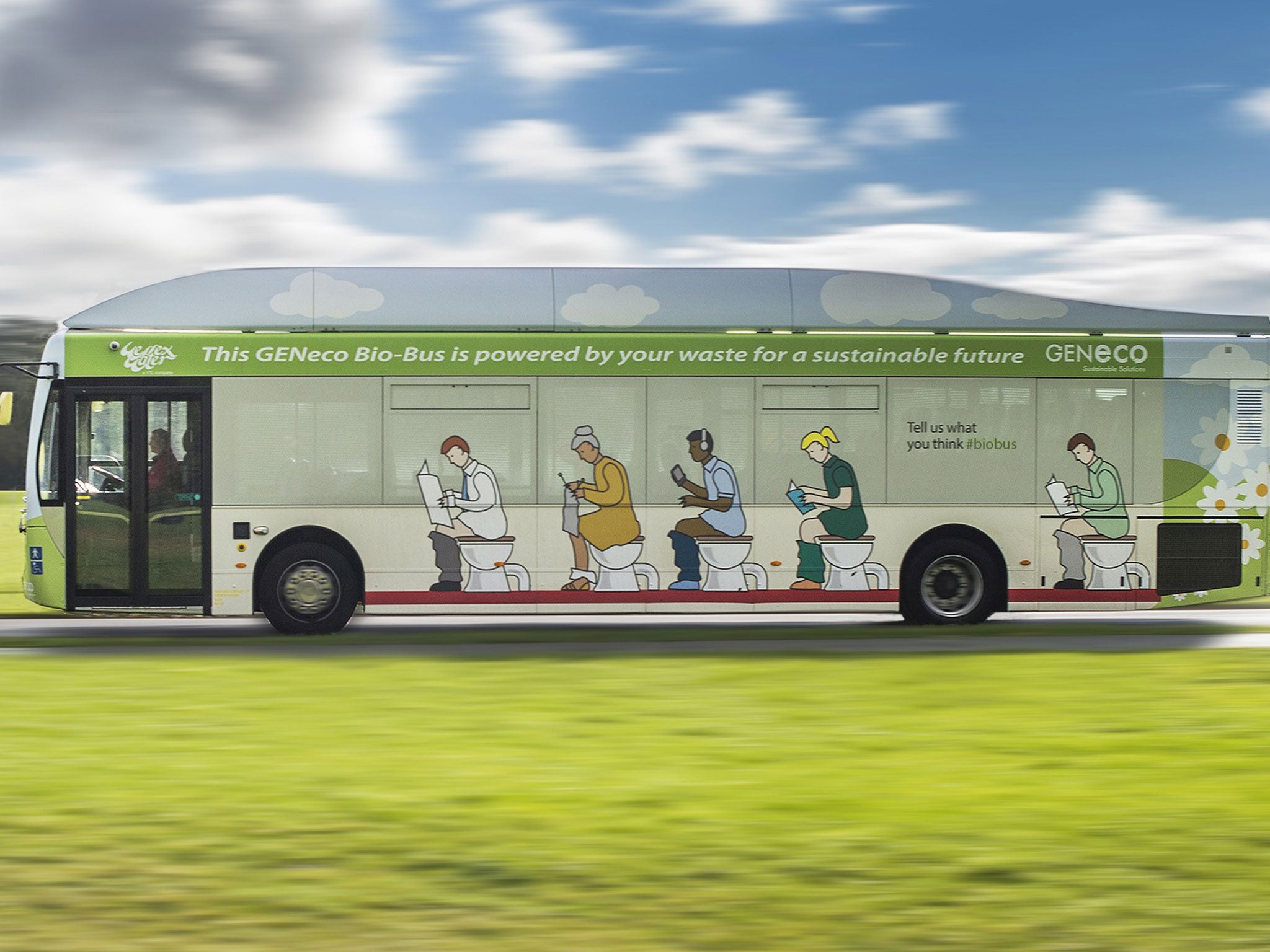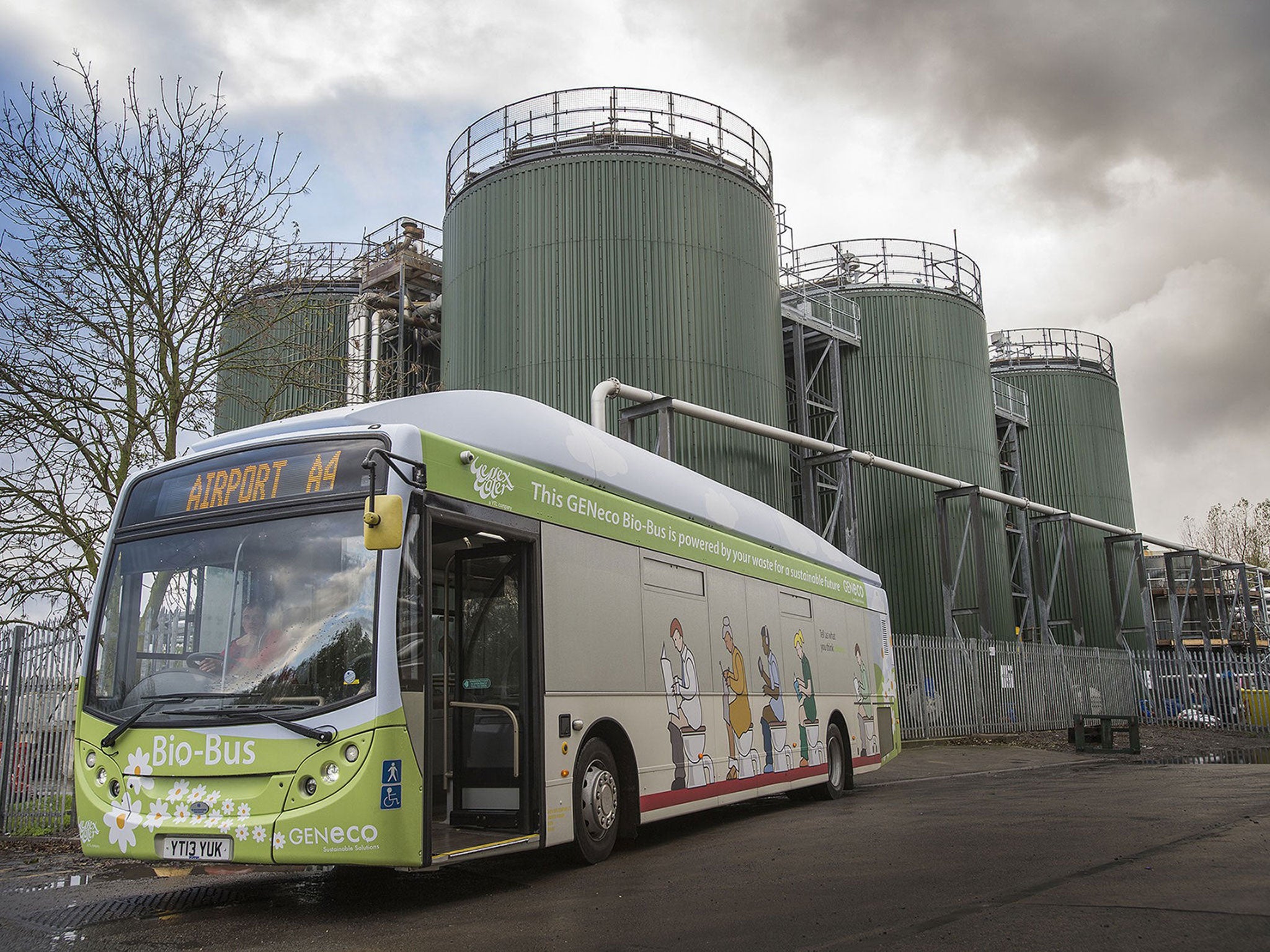First UK bus powered entirely by human waste goes into service in Bath and Bristol
Bus can travel 186 miles on one tank of gas

The first bus in Britain powered entirely by human and food waste has made its first journey today.
Bio-Bus, a 40-seater shuttle service between Bath and Bristol Airport, can travel up to 186 miles on just one tank of gas.
Gas is generated through the treatment of sewage and food waste deemed unfit for human consumption.
The annual waste generated from one bus load of passengers would provide enough power for a return trip from Land's End to John O'Groats.
The bus, which has spawned a number of appropriate nick-names, including the ‘number two bus’ , is being hailed as a sustainable way of fuelling public transport while improving urban air quality.
The gas used to run the bus is generated at the Bristol sewage treatment works, which is run by GENeco, a subsidiary of Wessex Water.

Mohammed Saddiq, general manager of GENeco, believes treating the food and sewage waste can produce enough biomethane to provide a significant supply of gas to the national gas network capable of powering almost 8,500 homes - as well as fuelling the Bio-Bus.
"Gas-powered vehicles have an important role to play in improving air quality in UK cities, but the Bio-Bus goes further than that and is actually powered by people living in the local area, including quite possibly those on the bus itself,” he said.
"Using biomethane in this way not only provides a sustainable fuel, but also reduces our reliance on traditional fossil fuels."
The first load of passengers on the Bio Bus will be visitors to the UK commuting from Bristol Airport to the historic city of Bath.
Collin Field, engineering director at Bath Bus Company, said he Bio-Bus was being launched at a very "appropriate" time, as the city of Bristol would become the European Green Capital in 2015.
"Up to 10,000 passengers are expected to travel on the A4 service in a month, which is available not only for airport travel, but also local journeys along the route through Saltford, Keynsham, Brislington, Knowle and Hengrove.
"With so much attention being directed towards improving air quality generally, the public reaction to the appearance of this bus on a service between a World Heritage City and an airport will further focus on the potential for this particular fuel."
Additional reporting by PA
Join our commenting forum
Join thought-provoking conversations, follow other Independent readers and see their replies
Comments